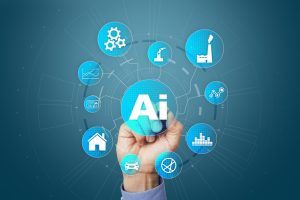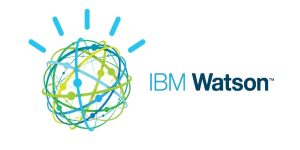
AI Marketing Strategies: Transforming Modern Marketing
In today’s rapidly evolving digital landscape, AI marketing strategies are revolutionizing how businesses engage with customers, optimize campaigns, and drive growth. Artificial intelligence (AI) is no longer a futuristic concept—it’s an essential tool that marketers are using to gain deeper insights, personalize experiences, and enhance overall marketing efficiency. By leveraging machine learning algorithms, data analytics, and automation, AI is reshaping marketing strategies and delivering unprecedented value to businesses.
What Are AI Marketing Strategies?

AI marketing strategies involve using artificial intelligence technologies to automate, analyze, and improve various marketing tasks and decision-making processes. From customer segmentation to personalized content creation and campaign optimization, AI can significantly enhance how businesses approach marketing. These strategies enable companies to collect and interpret vast amounts of data, allowing for more accurate targeting, enhanced personalization, and real-time decision-making.
AI-driven marketing tools include chatbots, predictive analytics, natural language processing (NLP), recommendation engines, and programmatic advertising, among others. These tools help marketers streamline workflows, gain valuable customer insights, and create more engaging marketing experiences.
Key Benefits of AI Marketing Strategies
Personalization at Scale:
One of the most significant advantages of AI in marketing is its ability to deliver highly personalized experiences at scale. AI algorithms can analyze user behavior, preferences, and past interactions to create tailored content and offers for each customer. Whether it’s personalized product recommendations or dynamic email campaigns, AI ensures that each customer receives relevant and engaging content, boosting customer satisfaction and conversion rates.
Improved Targeting and Segmentation:
AI can sift through large datasets to identify patterns and trends that might go unnoticed by human analysts. By doing so, AI enables marketers to create more precise customer segments based on behavior, demographics, interests, and more. This targeted approach helps optimize ad spend and ensures that marketing messages reach the right audience at the right time.
Automation and Efficiency:
AI marketing tools, such as chatbots and automated email campaigns, allow businesses to engage with customers 24/7 without human intervention. This increases efficiency and ensures that businesses can respond to customer inquiries, offer support, and nurture leads in real time. Automating repetitive tasks also frees up marketing teams to focus on more strategic initiatives.
Enhanced Customer Insights:
AI-driven analytics tools provide deeper insights into customer behavior, enabling marketers to make data-driven decisions. Predictive analytics can forecast customer preferences, buying habits, and even lifetime value, helping businesses develop more effective long-term strategies.
Cost-Effective Campaigns:
By improving targeting, personalization, and automation, AI helps businesses reduce marketing costs while maximizing return on investment (ROI). For example, AI-powered programmatic advertising optimizes ad bidding in real-time, ensuring that businesses get the most value from their ad budgets.
Real-Time Optimization:
AI tools can continuously monitor and adjust marketing campaigns in real time based on performance data. Whether it’s tweaking ad placements or adjusting messaging based on user behavior, AI ensures that campaigns are always performing at their best, without the need for manual intervention.
AI Marketing Tools and Techniques

Chatbots:
AI-powered chatbots are becoming essential for businesses looking to improve customer service and engagement. These bots use natural language processing (NLP) to understand and respond to customer inquiries in real time. Chatbots can handle a wide range of tasks, from answering FAQs to helping customers complete purchases, all while providing a personalized experience.
Predictive Analytics:
I can analyze historical data to predict future trends and customer behavior. Predictive analytics helps marketers understand what products or services customers are likely to buy, when they will make a purchase, and how to reach them effectively. By leveraging these insights, businesses can optimize product recommendations, pricing strategies, and marketing messages.
Programmatic Advertising:
AI-powered programmatic advertising automates the process of buying and selling digital ads. It uses machine learning algorithms to bid on ad space in real time, ensuring that businesses reach their target audience at the optimal time and cost. This allows for more efficient ad spending and higher conversion rates.
Content Generation:
AI tools like Jasper and Copy.ai can generate engaging marketing copy, blog posts, product descriptions, and social media content. These AI platforms use NLP to create relevant and persuasive content, helping marketers maintain a consistent content pipeline without requiring a full team of writers.
Email Marketing Automation:

AI-powered email marketing platforms like Mailchimp and HubSpot enable businesses to automate their email campaigns with personalized content based on user behavior. These platforms can track customer interactions and trigger emails that are relevant to the recipient, improving open rates and conversions.
Voice Search Optimization:
With the growing use of voice-activated assistants like Alexa, Siri, and Google Assistant, optimizing for voice search is becoming critical for modern marketing. AI helps marketers analyze voice search data to understand how customers are interacting with brands using spoken queries and adjust their content strategy accordingly.
Real-World Examples of AI Marketing Strategies
Coca-Cola’s AI-Powered Marketing:
Coca-Cola has embraced AI to enhance customer engagement and content personalization. The company uses AI-driven analytics to predict consumer preferences and develop targeted marketing campaigns. One notable example is their use of AI to optimize social media content by analyzing which types of posts resonate most with audiences. Additionally, Coca-Cola has experimented with AI-generated ads, using machine learning to develop creative concepts based on data insights.
Amazon’s Recommendation Engine:
Amazon is a leader in leveraging AI to provide personalized shopping experiences. Their recommendation engine analyzes customer behavior, purchase history, and browsing patterns to suggest products tailored to each user. This strategy not only increases customer satisfaction but also drives sales, with product recommendations accounting for a significant portion of Amazon’s revenue.
Netflix and Content Personalization:
Netflix uses AI to personalize user experiences by recommending shows and movies based on individual viewing habits. Their sophisticated algorithms analyze user behavior to suggest content, optimize thumbnails, and even predict which shows will be popular in specific demographics. This personalized approach has helped Netflix maintain a strong user base and increase viewing time on its platform.
Case Studies: The Impact of AI Marketing Strategies
Sephora’s AI Chatbot Success:
Sephora, a global beauty retailer, has successfully integrated AI chatbots to enhance customer experiences. Their chatbot, known as Sephora Virtual Artist, allows users to try on makeup virtually through AI-driven augmented reality (AR). Customers can upload photos and see how different products would look on their faces before making a purchase. This innovative use of AI has boosted customer engagement and driven online sales by offering a unique and personalized shopping experience.
BMW’s AI-Driven Ad Campaign:
BMW used AI to optimize its marketing campaigns and engage with its target audience in a highly personalized way. By using predictive analytics and machine learning, BMW analyzed customer data to deliver targeted ads based on preferences and online behavior. The AI-powered system continuously optimized the ad creatives, leading to higher engagement rates and increased conversions.
The North Face and IBM Watson:

The North Face partnered with IBM Watson to develop an AI-powered shopping assistant. By using natural language processing (NLP), Watson interacted with customers to understand their preferences and recommend products tailored to their needs. The AI assistant significantly improved the shopping experience, leading to higher customer satisfaction and increased online sales.
Challenges of AI Marketing Strategies
While AI marketing offers numerous advantages, there are some challenges to consider:
Data Privacy Concerns:
AI relies on vast amounts of data to function effectively. This has raised concerns over data privacy and security, particularly with regulations like GDPR and CCPA. Businesses must ensure that they are collecting, storing, and using customer data responsibly to avoid legal issues and maintain consumer trust.
Implementation Costs:
While AI marketing tools can offer a strong return on investment, the initial setup and implementation costs can be high. Small businesses, in particular, may find it challenging to invest in AI technology without seeing immediate returns.
Dependence on Data Quality:
AI systems are only as good as the data they are trained on. Poor-quality or incomplete data can lead to inaccurate predictions and ineffective marketing campaigns. Businesses need to ensure they are using clean, high-quality data to get the best results from their AI tools.
Skill Gap:
Implementing AI marketing strategies often requires specialized knowledge in AI, data analytics, and machine learning. Many businesses may struggle to find or train employees with the necessary skill sets to make the most of AI tools.
The Future of AI Marketing Strategies
The future of AI marketing is filled with possibilities. As AI technology continues to evolve, we can expect even more advanced marketing tools that offer greater personalization, predictive capabilities, and automation. AI will likely become more integrated with emerging technologies such as augmented reality (AR), virtual reality (VR), and blockchain, creating new ways for brands to engage with customers.
Moreover, advancements in AI ethics and transparency will be essential in addressing concerns about data privacy and algorithmic bias. As businesses adopt AI marketing strategies, they must prioritize ethical AI practices to ensure that their systems are fair, transparent, and secure.
Conclusion
AI marketing strategies are transforming how businesses approach customer engagement, campaign optimization, and data analysis. From personalization and predictive analytics to automation and real-time optimization, AI offers a host of benefits that drive efficiency, increase ROI, and enhance customer experiences. As AI technology continues to advance, its role in marketing will only become more critical, making it a must-have tool for businesses looking to stay competitive in the digital age.
By embracing AI marketing strategies, businesses can not only improve their current marketing efforts but also future-proof their operations for the rapidly evolving world of digital marketing.









